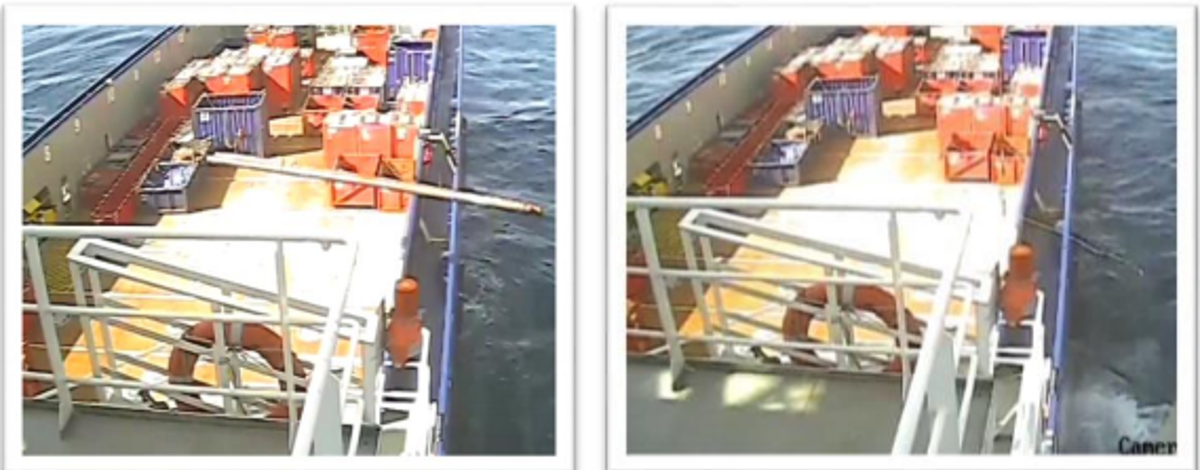Step Change: Cargo operations offshore causing damage
- Safety Flash
- Published on 28 March 2017
- Generated on 28 February 2026
- IMCA SF 07/17
- 2 minute read
UK Step Change in Safety has published a safety alert regarding a number of incidents which have taken place during cargo operations offshore causing damage to vessels, the cargo, and/or the offshore installation crane.
The incidents included:
- A CCU was being back loaded from an installation when it hit a container already back loaded. The impact on the CCU caused it to then swing into a safe haven where it caught on the anti-snag bar and damaged the bar.
- A drill pipe back loaded from an installation swung inside a safe haven doorway, the lifting slings broke and the pipe fell overboard (illustrated below).
- A PSV without anti snag bars and no ‘tiger stripe’ highlighting the cargo rail tops suffered several snagging incidents, causing damage to the vessel, cargo and offshore crane.

Step Change highlighted the following good practice guidance:
- Vessel Masters should satisfy themselves that all potential cargo snagging areas on the cargo deck have cargo snag bars fitted. The anti-snag bars should be regularly inspected to ensure they remain ‘fit for purpose’.
- Vessel Masters should satisfy themselves that the cargo top rails are sufficiently highlighted to ensure crane operators looking down from height can easily identify potential snagging areas.
- Offshore crane operators should be made fully aware of the significance of the highlighted areas on the vessels top cargo rails and when/where possible avoid loading small CCUs against these areas.
A Safety Moment prepared by Step Change can be seen at: https://www.stepchangeinsafety.net/sites/default/files/cargo%20snagging%20reduction%20measures.pdf
IMCA Safety Flashes summarise key safety matters and incidents, allowing lessons to be more easily learnt for the benefit of the entire offshore industry.
The effectiveness of the IMCA Safety Flash system depends on the industry sharing information and so avoiding repeat incidents. Incidents are classified according to IOGP's Life Saving Rules.
All information is anonymised or sanitised, as appropriate, and warnings for graphic content included where possible.
IMCA makes every effort to ensure both the accuracy and reliability of the information shared, but is not be liable for any guidance and/or recommendation and/or statement herein contained.
The information contained in this document does not fulfil or replace any individual's or Member's legal, regulatory or other duties or obligations in respect of their operations. Individuals and Members remain solely responsible for the safe, lawful and proper conduct of their operations.
Share your safety incidents with IMCA online. Sign-up to receive Safety Flashes straight to your email.